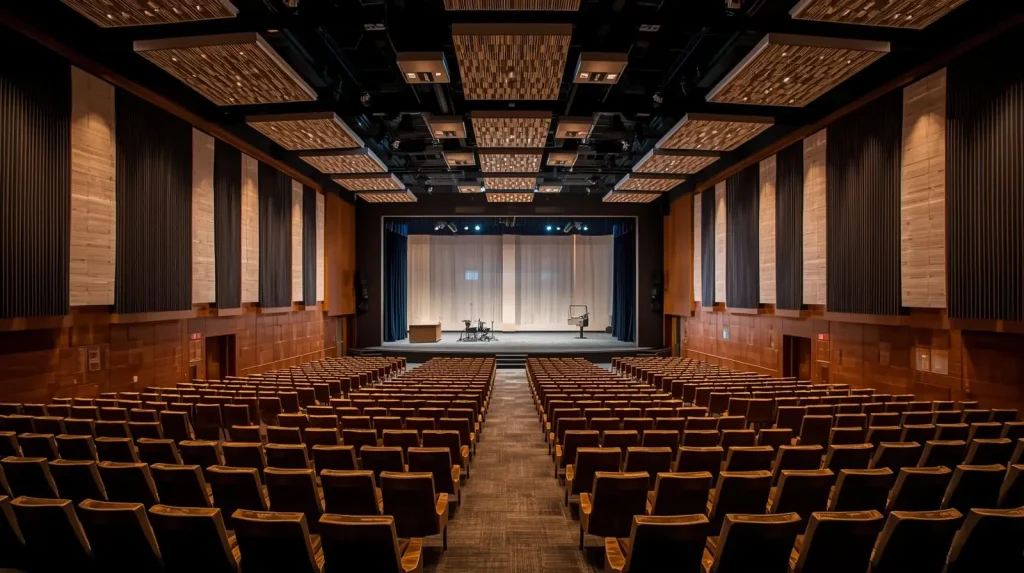Event halls are designed for gatherings, celebrations, and live performances, but poor acoustics or noise leaks can quickly ruin the experience. Whether it is a wedding reception, corporate seminar, or music concert, sound clarity and noise control are essential. Event organizers and venue managers often struggle with unwanted echoes, outside disturbances, or sound bleeding into adjacent spaces.
The good news is that modern soundproofing solutions can transform an average event hall into a professional, acoustically balanced venue. In this guide, we will cover the top 10 soundproofing solutions for event halls that improve sound quality, reduce noise transfer, and enhance the overall guest experience.
1. Acoustic Wall Panels for Noise Reduction
Installing acoustic wall panels is one of the most effective ways to absorb unwanted sound. These panels minimize echoes and reverberations by trapping mid and high-frequency noise.
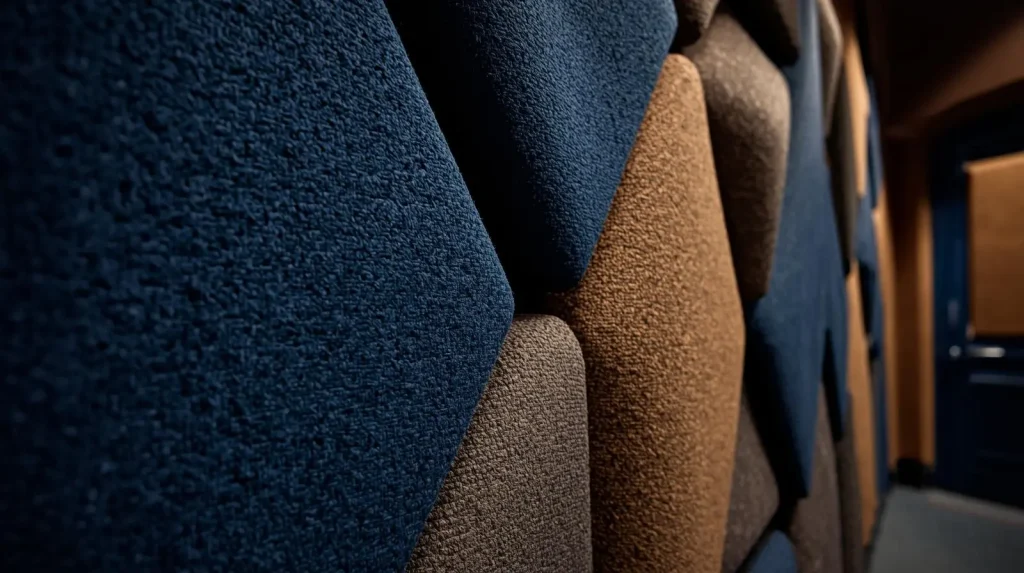
Event halls benefit greatly from this solution because it improves speech intelligibility, making presentations, live music, and announcements crystal clear. Panels can also be customized in colors and patterns to complement the hall’s design.
2. Soundproof Curtains for Flexible Control
Soundproof curtains are a versatile and cost-effective option. Made from dense, layered fabrics, these curtains help block external noise while also absorbing sound inside the hall.
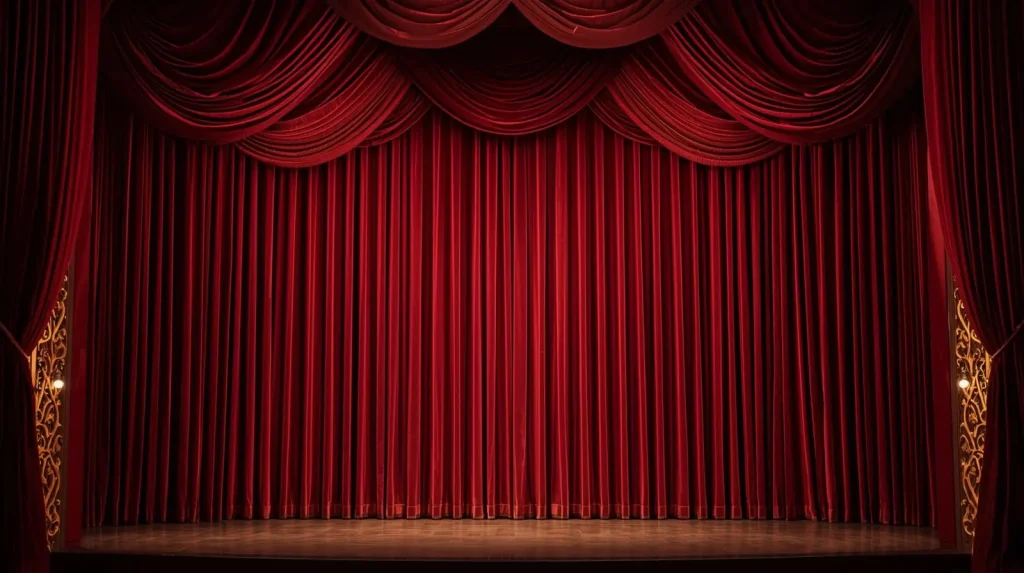
They are especially useful for multipurpose event venues where flexible sound control is needed. Curtains can be drawn when privacy and silence are required or opened up for a more open space.
3. Acoustic Ceiling Clouds for Echo Control
High ceilings in event halls often cause echo problems. Installing acoustic ceiling clouds helps absorb sound reflections, creating a more balanced acoustic environment.
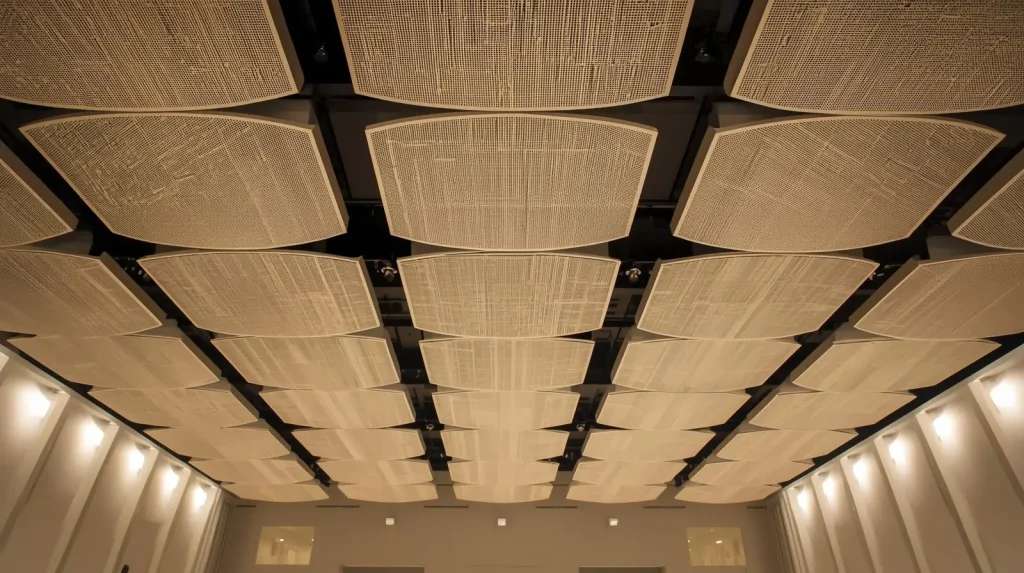
These suspended panels are highly effective in controlling reverberation in large spaces. They also add a modern and stylish look to the hall, enhancing both functionality and aesthetics.
4. Carpeting and Rugs to Reduce Footfall Noise
Hard flooring surfaces amplify footstep noise and contribute to sound reflections. Adding carpeting or large rugs is a simple yet effective way to soften impact noise and reduce echo.
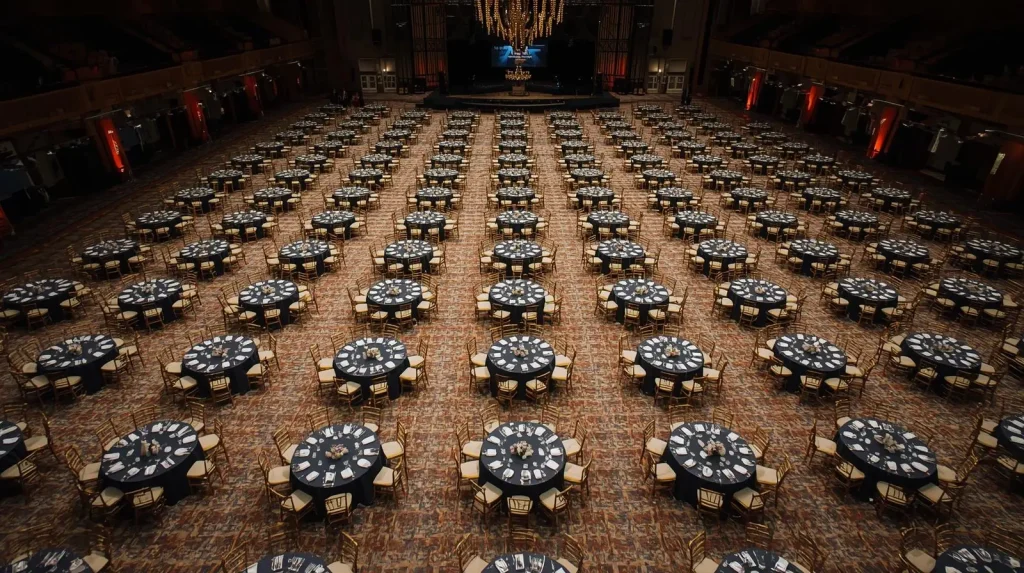
For event halls that cannot install permanent carpets, temporary rollout carpets are a flexible option that delivers quick acoustic improvement without major renovations.
5. Double-Glazed Windows for External Noise Blockage
External noise can easily disrupt events, especially in urban locations. Installing double-glazed windows helps block traffic, construction, or street noise from entering the hall.
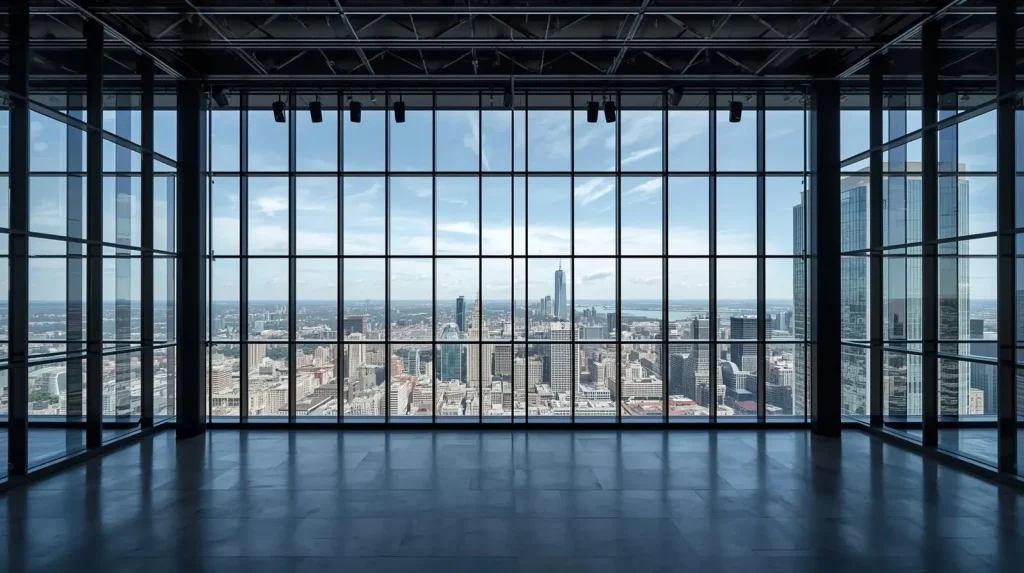
This solution not only improves soundproofing but also increases energy efficiency by providing better insulation.
6. Soundproof Doors to Prevent Sound Leakage
Doors are often the weakest points in an event hall’s acoustic structure. Upgrading to solid-core, soundproof doors with proper seals prevents noise leakage in and out of the venue.
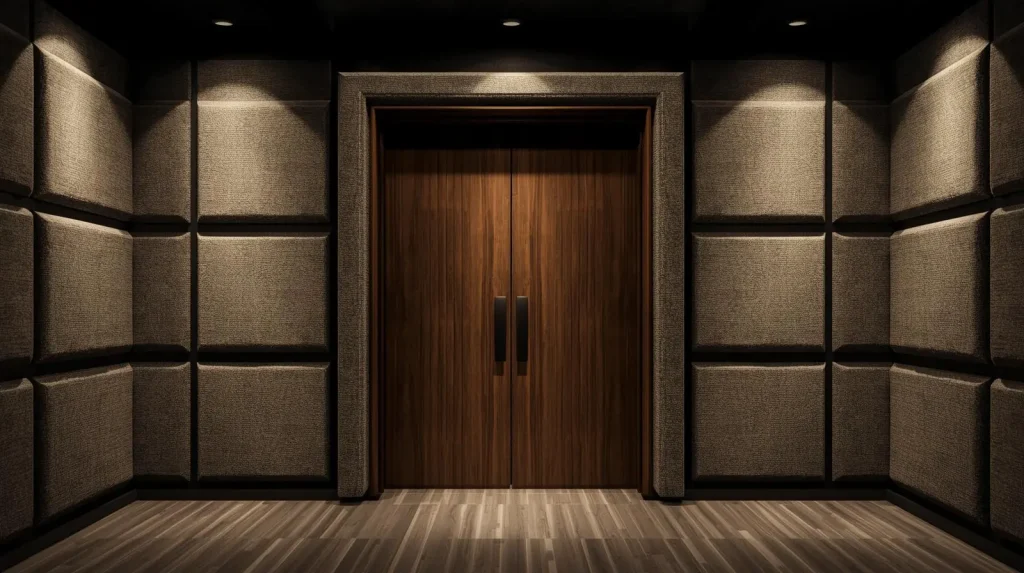
To maximize performance, acoustic door sweeps and seals should be added around the frame to block gaps where sound can travel.
7. Stage Backdrops with Acoustic Treatment
For event halls hosting concerts, plays, or presentations, acoustic stage backdrops play a key role. These specialized backdrops absorb sound while also preventing it from bouncing off hard walls.
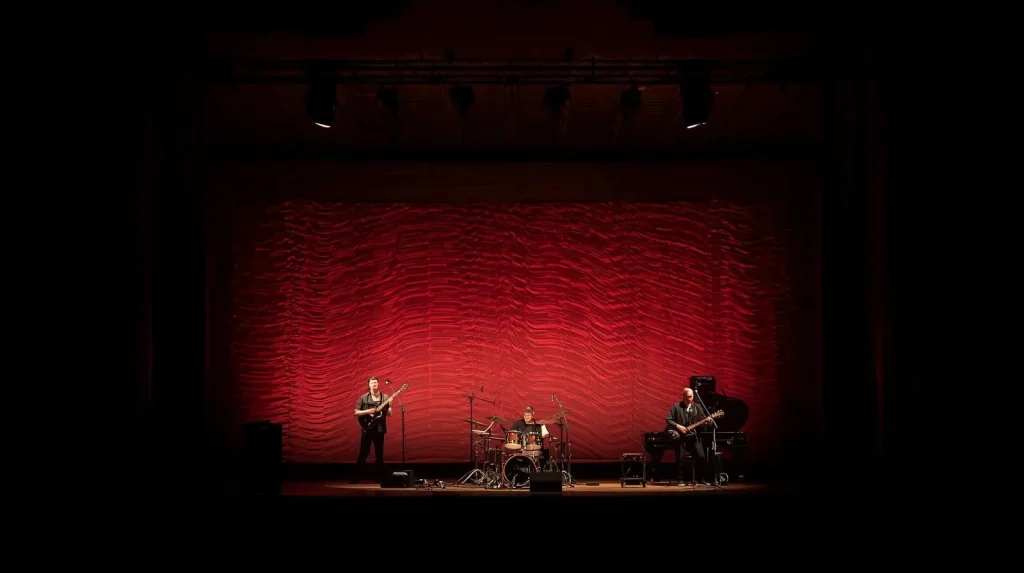
They improve the overall listening experience for the audience and provide performers with better sound clarity on stage.
8. Bass Traps for Low-Frequency Control
Large halls often suffer from low-frequency build-up, which creates a boomy and unclear sound. Installing bass traps in corners and behind stages helps control low-end frequencies.
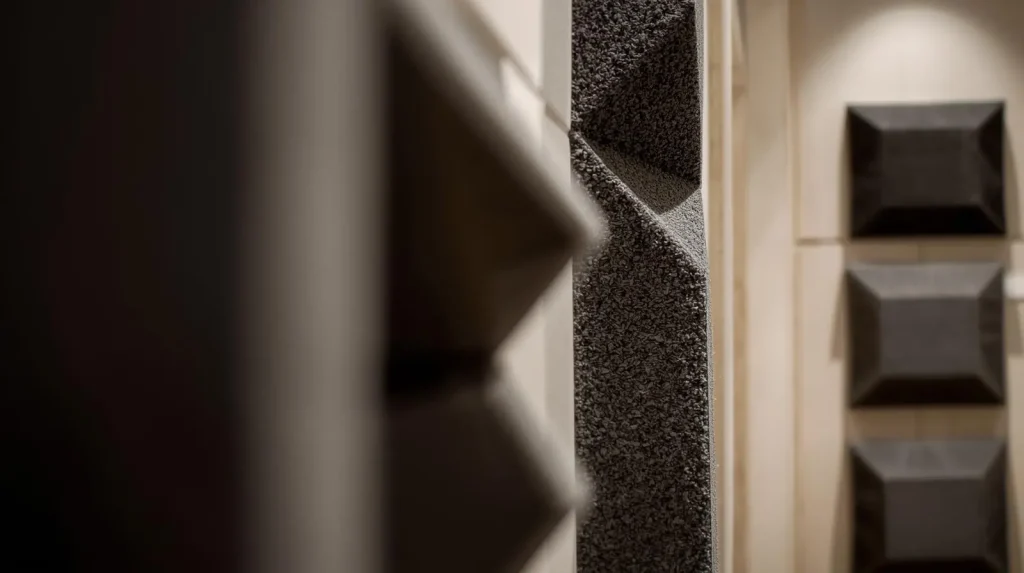
This solution is particularly useful for halls that host music events or conferences with amplified sound systems.
9. Acoustic Partitions for Flexible Space Division
When event halls are divided into smaller spaces, sound often bleeds between sections. Using acoustic partitions provides flexible noise isolation.
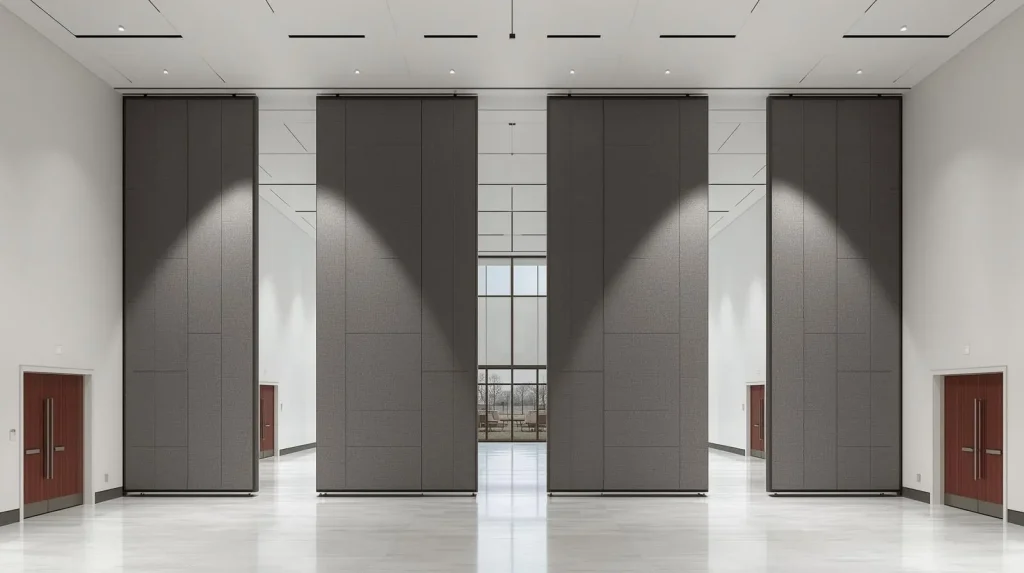
These movable walls not only separate events but also minimize sound transfer, ensuring multiple gatherings can take place simultaneously without disturbance.
10. Complete Acoustic Insulation for Structural Soundproofing
For long-term improvements, investing in comprehensive acoustic insulation during construction or renovation is the most effective approach. This includes soundproof drywall, insulated ceilings, and specialized flooring systems.
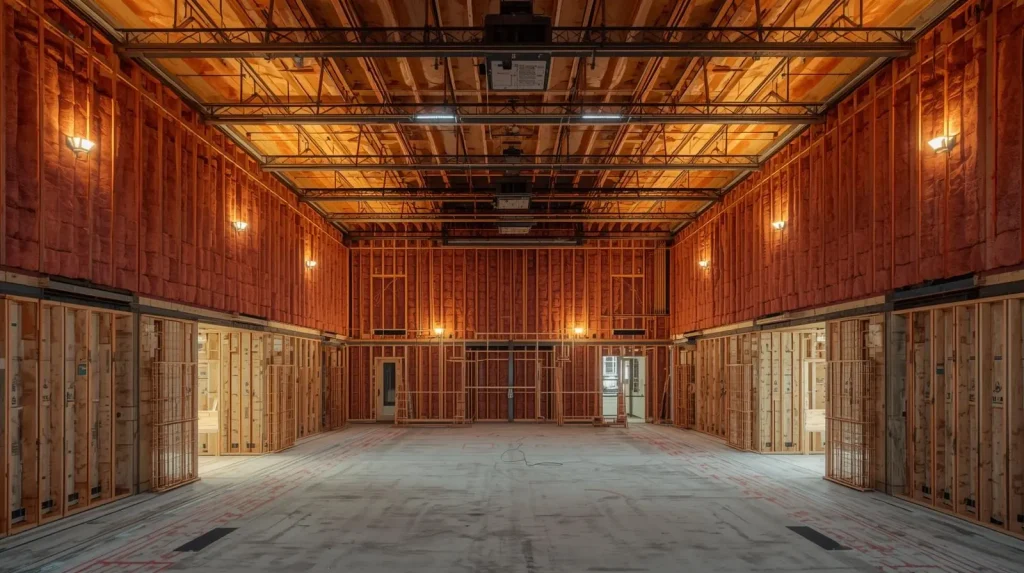
Although it requires higher upfront investment, this solution provides maximum noise isolation and creates a truly professional-grade event venue.
Additional Tips for Event Hall Soundproofing
Beyond these core solutions, a few extra measures can enhance acoustic performance:
- Seal all wall and floor gaps to prevent sound leakage.
- Use upholstered seating to absorb more sound.
- Place decorative acoustic elements like wall art with sound-absorbing properties.
- Regularly test sound systems to balance output with room acoustics.
Conclusion
Soundproofing an event hall is not just about reducing noise; it is about creating an environment where every word, note, and announcement is heard clearly. From acoustic wall panels to complete insulation systems, each solution contributes to a better guest experience and a more professional venue.
Whether you are managing a community hall, a wedding venue, or a concert space, investing in soundproofing ensures events run smoothly without distractions. Start by identifying your hall’s biggest acoustic challenges and apply these solutions step by step for maximum impact.
Looking to upgrade your event hall soundproofing? Contact a professional acoustic consultant to design a solution tailored to your venue.

